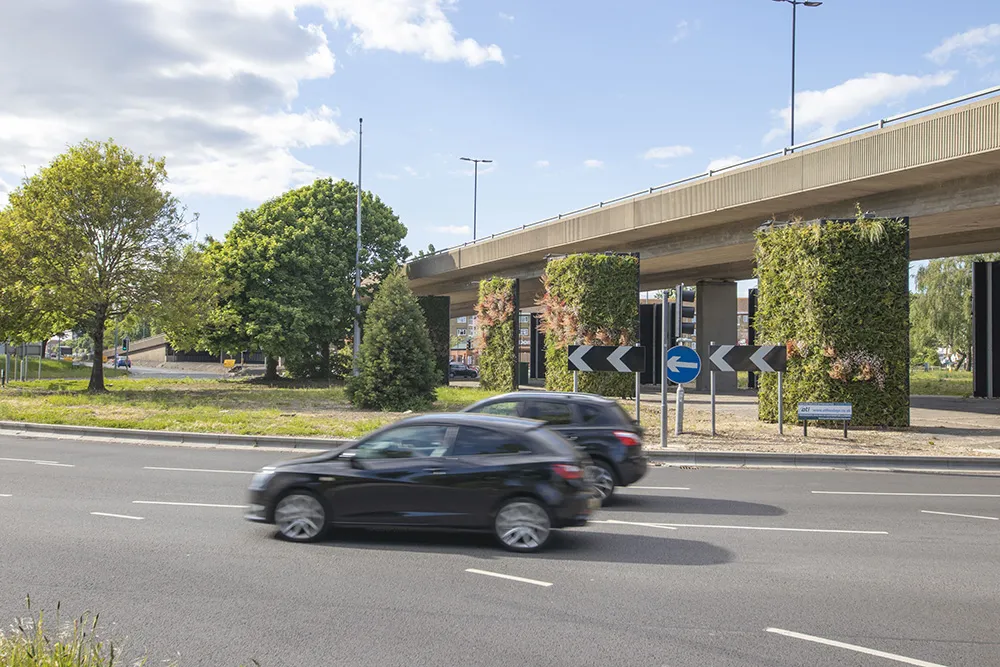According to two university researchers, UK transport planning is not sufficiently taking into account the environmental impacts of transport choices. Their report, which is due to be presented at the Royal Geographical Society (with IBG) Annual International Conference today, says that road transport is the principal cause of air pollution in over 95 per cent of legally designated “Air Quality Management Areas” in the UK. Current estimates are that over 50,000 deaths a year can be attributed to air polluti
August 31, 2016
Read time: 3 mins
According to two university researchers, UK transport planning is not sufficiently taking into account the environmental impacts of transport choices.
Their report, which is due to be presented at the Royal Geographical Society (with IBG) Annual International Conference today, says that road transport is the principal cause of air pollution in over 95 per cent of legally designated “Air Quality Management Areas” in the UK. Current estimates are that over 50,000 deaths a year can be attributed to air pollution in this country.
Dr Tim Chatterton and Professor Graham Parkhurst, both of the University of the West of England (UWE), Bristol, reviewed the findings of a number of projects they had been involved with to identify the underlying reasons why the air pollution concentrations from UK road transport have shown little-to-no reduction over the last two decades.
They found that UK transport planners are not taking the environmental impacts of transport choices sufficiently into account. Despite pollution contributing between 15 and 30 times the annual number of deaths associated with road traffic accidents (RTAs) (2000-2015), Road Traffic Collisions (RTC) continue to remain the primary concern of transport planners while, at best, air pollution has been designated a “shared priority” between the Department for Environment, Food and Rural Affairs (Defra) and the1837 Department for Transport (DfT).
“Air pollution is perhaps the grossest manifestation of a general failure of UK transport planning to take the environmental impacts of transport choices sufficiently into account. Currently air pollution is a shared priority between Defra and DfT, but shared priority does not mean equal priority.
“Environmental managers only identify and monitor the problems. Insufficient relevant priority has been given within the sector responsible for most relevant emissions – transport policy and planning – which has instead prioritised safety and economic growth,” said Professor Parkhurst.
Alongside a lack of joined-up government, the study identified a strategic policy ‘tone’ which continues to signal and provide for the private car as central to national transport policy, combined with limited regulatory and financial support for alternative modes of transport and for local authorities seeking to introduce potentially effective air improvement measures such as ‘low emissions zones’.
Professor Parkhurst and Dr Chatterton also called for poor air quality to be promoted as a public health priority issue.
“Air pollution-related morbidity and mortality are at ‘epidemic’ levels and, although less obvious, are more significant than road transport collisions as a cause of death and injury,” said Dr Chatterton. “Politicians at local and national levels must treat poor air quality as a public health priority, placing clear emphasis on the severity of the problem and the limitations of technological fixes.
“Existing approaches that focus on individual, voluntary, behaviour change and technological innovations are not sufficient to tackle poor air quality.”
Their report, which is due to be presented at the Royal Geographical Society (with IBG) Annual International Conference today, says that road transport is the principal cause of air pollution in over 95 per cent of legally designated “Air Quality Management Areas” in the UK. Current estimates are that over 50,000 deaths a year can be attributed to air pollution in this country.
Dr Tim Chatterton and Professor Graham Parkhurst, both of the University of the West of England (UWE), Bristol, reviewed the findings of a number of projects they had been involved with to identify the underlying reasons why the air pollution concentrations from UK road transport have shown little-to-no reduction over the last two decades.
They found that UK transport planners are not taking the environmental impacts of transport choices sufficiently into account. Despite pollution contributing between 15 and 30 times the annual number of deaths associated with road traffic accidents (RTAs) (2000-2015), Road Traffic Collisions (RTC) continue to remain the primary concern of transport planners while, at best, air pollution has been designated a “shared priority” between the Department for Environment, Food and Rural Affairs (Defra) and the
“Air pollution is perhaps the grossest manifestation of a general failure of UK transport planning to take the environmental impacts of transport choices sufficiently into account. Currently air pollution is a shared priority between Defra and DfT, but shared priority does not mean equal priority.
“Environmental managers only identify and monitor the problems. Insufficient relevant priority has been given within the sector responsible for most relevant emissions – transport policy and planning – which has instead prioritised safety and economic growth,” said Professor Parkhurst.
Alongside a lack of joined-up government, the study identified a strategic policy ‘tone’ which continues to signal and provide for the private car as central to national transport policy, combined with limited regulatory and financial support for alternative modes of transport and for local authorities seeking to introduce potentially effective air improvement measures such as ‘low emissions zones’.
Professor Parkhurst and Dr Chatterton also called for poor air quality to be promoted as a public health priority issue.
“Air pollution-related morbidity and mortality are at ‘epidemic’ levels and, although less obvious, are more significant than road transport collisions as a cause of death and injury,” said Dr Chatterton. “Politicians at local and national levels must treat poor air quality as a public health priority, placing clear emphasis on the severity of the problem and the limitations of technological fixes.
“Existing approaches that focus on individual, voluntary, behaviour change and technological innovations are not sufficient to tackle poor air quality.”










